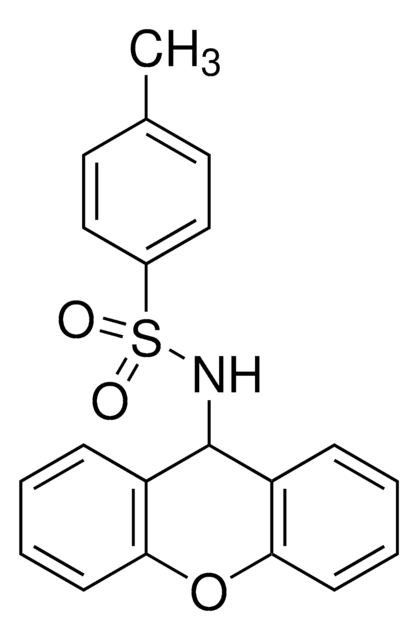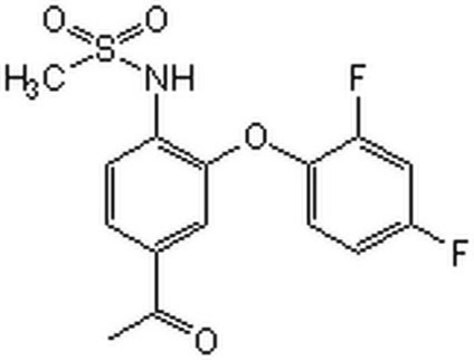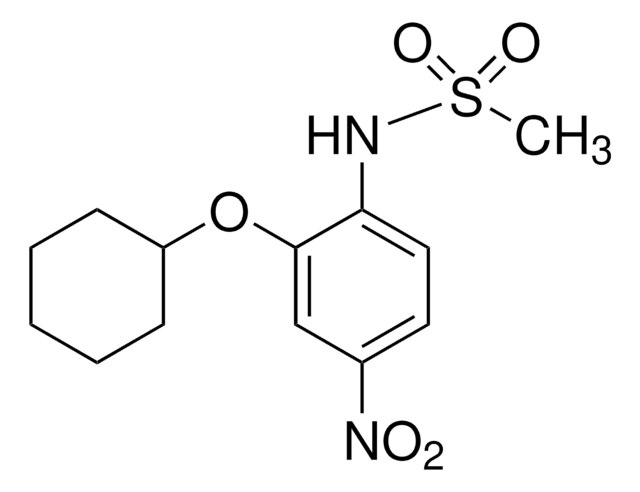A1221
AH6809
≥98%, crystalline solid or supercooled liquid
Synonym(s):
6-Isopropoxy-9-oxoxanthene-2-carboxylic acid
About This Item
Recommended Products
Quality Level
Assay
≥98%
form
crystalline solid or supercooled liquid
solubility
ethanol: soluble 2.5 mg/mL
DMSO or DMF: soluble 8 mg/mL
SMILES string
CC(C)Oc1ccc2c(Oc3ccc(cc3C2=O)C(O)=O)c1
InChI
1S/C17H14O5/c1-9(2)21-11-4-5-12-15(8-11)22-14-6-3-10(17(19)20)7-13(14)16(12)18/h3-9H,1-2H3,(H,19,20)
InChI key
AQFFXPQJLZFABJ-UHFFFAOYSA-N
Application
- as a prostaglandin E2 receptor 1 & 2 (EP1/2) antagonist to analyze its effects on cyclooxygenase-2 /prostaglandin E2 (COX-2/PGE2) signaling in the angiogenic feedback of endothelial cells to hypoxia
- as an EP2 antagonist to study its effects on tumor angiogenesis in human prostate cancer cell lines
- as an EP2 antagonist to analyze its effects on overexpression of amyloid precursor protein (APP)
Biochem/physiol Actions
Features and Benefits
Storage Class Code
11 - Combustible Solids
WGK
WGK 3
Flash Point(F)
Not applicable
Flash Point(C)
Not applicable
Personal Protective Equipment
Regulatory Listings
Regulatory Listings are mainly provided for chemical products. Only limited information can be provided here for non-chemical products. No entry means none of the components are listed. It is the user’s obligation to ensure the safe and legal use of the product.
JAN Code
A1221-5MG-PW:
A1221-BULK:
A1221-VAR:
A1221-25MG:
A1221-5MG:
Certificates of Analysis (COA)
Search for Certificates of Analysis (COA) by entering the products Lot/Batch Number. Lot and Batch Numbers can be found on a product’s label following the words ‘Lot’ or ‘Batch’.
Already Own This Product?
Find documentation for the products that you have recently purchased in the Document Library.
Our team of scientists has experience in all areas of research including Life Science, Material Science, Chemical Synthesis, Chromatography, Analytical and many others.
Contact Technical Service






